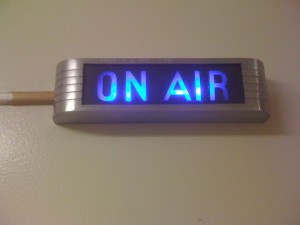Yesterday marked the one year anniversary of the devastating 7.0 magnitude earthquake in Haiti, which killed over 200,000 people and left a million homeless. At the time of the quake it became clear that radio was a vital resource for Haitian citizens, as it was often the communication tool used to find survivors and to disseminate information about emergency services. A new report, “Media, Information Systems, and Communities: Lessons from Haiti,” takes a look at the communication tools used during this crisis and offers specific recommendations for how both new and old technologies can be used in future emergencies.
I wasn’t surprised to see that in the list of recommendations provided in the full report (PDF), there’s a strong argument for the ongoing importance of radio. The report recommends that:
“The media development community should prioritize restoring local radio’s broadcast capacity and ensure that local media are given support to adequately respond in a crisis. As new platforms and technologies expand and are tested, it should not be forgotten that local radio still stands as a primary source of information for the overwhelming majority of the world’s population.”
When looking at the specific example of Haiti, the report is clear that radio was a crucial piece of the emergency response after the earthquake last year:
“Radio is Haiti’s dominant medium. Access to radio can be shared easily and relatively cheaply among many people, and serves both literate and illiterate populations. According to the CIA World Factbook, Haiti has over 250 commercial and community radio stations; a 2009 Voice of America survey describes radio receiver ownership as virtually universal. These factors made radio the undisputed lifeline for the Haitian public after the earthquake.”
It goes on to explain the impact of the quake on Haitian radio stations, with most stations’ broadcasts disrupted by the disaster. Signal FM stayed on the air “broadcasting to an audience of nearly three million throughout the crisis” and went beyond the typical expectations of a local radio station:
“Station owner Mario Viau was later honored by the National Association of Broadcasters Educational Foundation, which lauded Signal FM as a vital source of information for the millions of Haitians who had no access to fuel, electricity or telephone service immediately following the earthquake. ‘Its round-the-clock coverage helped locate missing people, spread news to families searching for lost loved ones and delivered messages to Haitians across Port-au-Prince regarding available water resources and hospital information. It also helped save the lives of numerous Haitians by providing reports to rescue teams describing where immediate aid was needed.'”
The report also points out that when other Haitian radio stations did get back on the air “they joined Signal FM in opening their microphones to Haitian citizens.” Stations also incorporated newer technologies, such as texting and Twitter to spread messages to their wired listeners. Beyond the work of local stations, Internews distributed donated radios and produced the radio show “News You Can Use,” focused on sharing emergency response information. “The show began on 11 stations able to broadcast at the time and reported critical information about water distribution points, the status of displaced persons camps and public health advisories.” Eventually that show aired on 27 different radio stations.
Additionally, the World Association of Community Radio Broadcasters (AMARC) worked to help broadcasters in Haiti by helping with resources and by reaching out to “community broadcasters to support the international relief effort by organizing airtime appeals and other activities, and to provide direct assistance (including donated equipment and funding) to community broadcasters affected by the earthquake.” And, indeed, it was encouraging to see that in the United States the FCC opted to allow non-commercial broadcasters the opportunity to raise money for Haitian quake relief and that many of those stations, such as KPFA, brought in a substantial amount of cash for to aid victims of the natural disaster.
Amid the horrific circumstances in Haiti following the earthquake, it’s gratifying to see that the worldwide radio community pulled together to facilitate communication among Haitian citizens and between victims and relief organizations. And, it’s a great reminder of the continuing power of radio.



